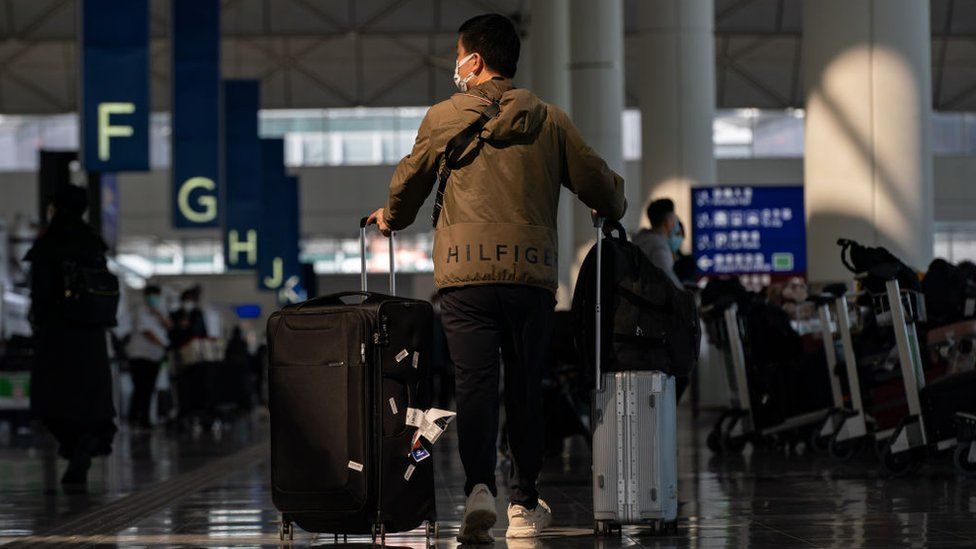ARTICLE AD BOX
 Image source, Getty Images
Image source, Getty Images
China's borders are set to fully reopen on 8 January for the first time in nearly three years
The UK is set to announce that passengers coming from China will have to provide a negative Covid test before they travel to Britain.
The UK has become the latest nation to bring in screening for travellers from China after cases surged following Beijing's decision to relax its zero-Covid policy.
China has said it will fully reopen its borders on 8 January.
Several countries, including the US and India, are also bringing in testing.
It is understood the UK will demand a negative test before travellers can board a flight from mainland China - bringing Britain into line with the approach taken by the US.
While the announcement has not yet been formally made, the UK defence secretary confirmed on Friday that the government was reviewing the need for testing for passengers from China.
Asked whether the government would consider restrictions, Ben Wallace said: "The government is looking at that, it's under review, we noticed obviously what the US has done and India and I think Italy has looked at it."
The head of the World Health Organization (WHO) said it was "understandable" that some countries were imposing these fresh restrictions.
But China's foreign ministry said earlier this week that its "epidemic situation" overall was "predictable and under control".
The Chinese government is reporting about 5,000 cases a day, but analysts say such numbers are vastly undercounted - and the daily caseload may be closer to one million.
The true toll of daily cases and deaths in China is unknown as officials have stopped requiring cases to be reported, and changed classifications for Covid deaths.
It is understood the UK enforced testing on visitors travelling from China partly due to concerns about the lack of reliable Covid data from country.
Spain, Israel and South Korea also announced on Friday that they will introduce testing requirements in response to the increasing number of infections in China.
Some scientists have questioned the approach of the UK and US - saying it is better to screen people once they have arrived. Italy and Spain have introduced post-arrival testing.
But not all countries have announced additional controls. Germany has joined Australia, France, and Portugal in saying there will be no new rules yet.
Concerns over impact of testing
Prof Andrew Pollard, chairman of the Joint Committee on Vaccination and Immunisation (JCVI), said the restrictions are unlikely to prevent new Covid variants reaching the UK and it was difficult to know what impact such a move would have here.
He told BBC News: "Trying to ban a virus by adjusting what we do with travel has already been shown not to work very well.
"We've seen that with the bans on travel from various countries during the pandemic, that hasn't stopped those viruses travelling around the world eventually."
But there is concern that more infections can provide more opportunities for the virus to mutate.
Countries that plan to test travellers say the policy will help spot worrying new variants early and prevent an influx of cases.
The US Centers for Disease Control and Prevention said testing visitors from China, Hong Kong and Macau was needed "to help slow the spread of the virus as we work to identify... any potential new variants that may emerge".
The government had also come under pressure from Conservative MPs who want a more robust response.
Tory MP David Davis suggested mandatory testing for those coming from China was a "pretty sensible requirement".
And Tobias Ellwood, chairman of the Commons Defence Select Committee, described testing as a "minimal effort".
He told LBC radio: "Let's get testing in place for passengers regardless of nationality on all incoming flights from China.
"Do we want to take a risk after all that we've been through in this pandemic?"

 2 years ago
20
2 years ago
20








 English (US) ·
English (US) ·